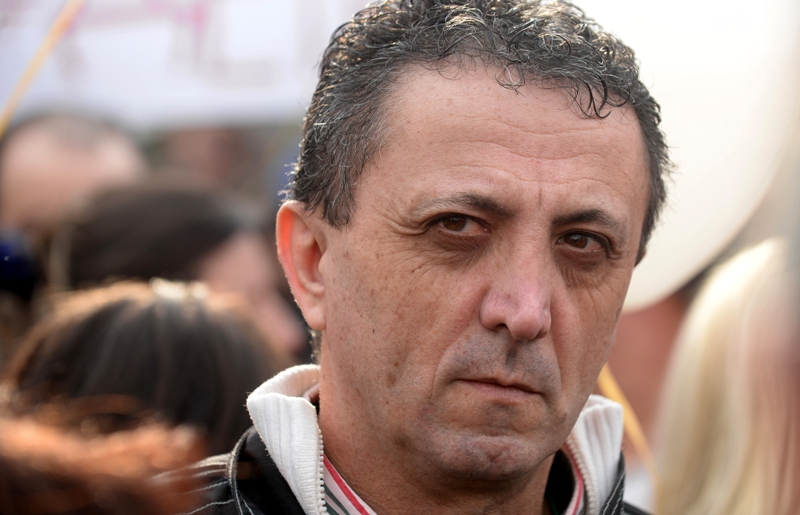The South East Europe Media Organisation (SEEMO) today condemned a decision by a court in Macedonia (Republic of Macedonia / FYROM) upholding the conviction of journalist Tomislav Kezarovski for allegedly revealing the identity of a protected witness.
The Skopje Court of Appeal on Jan. 15 rejected Kezarovski’s challenge to the conviction, but reduced his prison sentence from four-and-a-half years to two years. Kezarovski, who had been under house arrest, was returned to prison on Jan. 16 to serve the remainder of the sentence. He was released again on Jan. 20 on a temporary basis for health reasons. He reportedly will be required to serve the remainder of his sentence beginning on Feb. 18.
The journalist works for the Skopje-based daily Nova Makedonija. He was arrested in May 2013 and detained for 30 days for allegedly revealing a protected witness’ identity in an article that appeared in Reporter 92 magazine in 2008. His detention was extended several times before the Skopje First Basic Court sentenced him to four-and-a-half years in prison in October 2013. Kezarovski appealed the decision, and after 172 days in detention, he was transferred to house arrest as a result of domestic and international pressure.
The witness Kezarovski allegedly identified in the 2008 articles testified that he was only granted the status of “protected” witness in 2010 – two years after the articles in question were published. The witness had given testimony in a murder trial, but the defendants were later acquitted after the witness said that he gave false testimony after being threatened by police.
SEEMO Secretary General Oliver Vujovic noted that, regardless of other circumstances, Kezarovski disclosed only the witness’ given name, not his surname. Vujovic also pointed out that the ruling in Kezarovski’s case did not take into account the fact that the claim put forth in his articles – that police knowingly induced a protected witness to give false testimony – touched upon a matter of public interest.
“In cases where witnesses are granted protected status, state authorities bear the burden of providing that protection,” Vujovic said. “Even if the witness did have protected status at the time of the articles’ writing and publication, it would be the responsibility of state authorities, not an investigative journalist, to ensure that a witness’ identity remained confidential.”
Vujovic added: “The circumstances surrounding the Kezarovski case are absurd, breach human rights standards and basic principles of democracy, and are unworthy of an EU-candidate country. The persecution of Tomislav Kezarovski is a clear attack on the work of investigative journalists; Kezarovski was doing his job as journalist, but is being treated like a criminal. Every journalist must be able to carry out investigations in the public interest free from the threat of detention”.
SEEMO is a network of editors, media executives and leading journalists from South East and Central Europe, and an affiliate of the International Press Institute (IPI).



